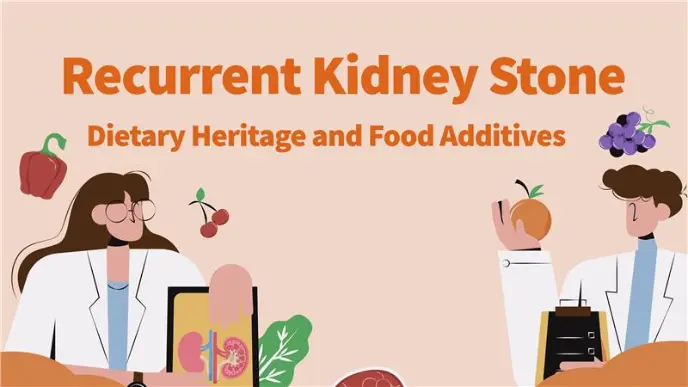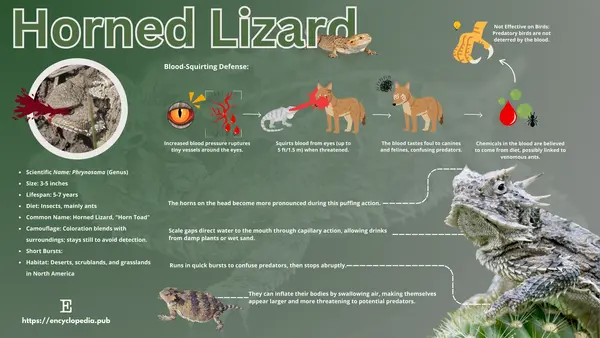You're using an outdated browser. Please upgrade to a modern browser for the best experience.
Encyclopedia:
From Scholars for Scholars
Trending Entries
News and Events
More >>
-
Ongoing07 Apr 2025Encyclopedia MDPI is thrilled to announce significant enhancements to its Academic Video Service, which aim to improve its quality, accessibility, and functionality. Since its launch, our video service has enabled numerous scholars to present their research in a dynamic and visually engaging format, greatly enhancing its visibility and impact. Due to the overwhelmingly positive reception this service has received, we have reached a point where the number of orders we are receiving exceeds our current capacity. In order to maintain the quality of these videos and continue optimizing the service, we have made the decision to introduce a fee. However, to ensure that this service is still a cost-effective option, we have set our prices significantly below the market average. Highlights of the Upgrades to the Service Although the service will now be fee-based, we are committed to providing even more professional and comprehensive support, including the following: One-on-one video production guidance Personalized assistance to ensure your needs are fully met. Scriptwriting and English editing Expertly crafted narratives and professional English editing to ensure your research is presented clearly, accurately, and with impact. High-quality animations Visually engaging animations are created to simplify complex research and captivate your audience. Whiteboard Animations: Clean and minimalist, using hand-drawn illustrations to explain ideas step-by-step. Motion Graphics (MG) Animations: Cartoon Style: Bright, colorful, and approachable, ideal for making technical or scientific content more accessible and engaging. Hand-Drawn Style: Unique and artistic, adding a personal touch to your research while maintaining clarity and professionalism. Customized infographics (optional) We can also create tailored infographics to visually summarize key data or findings, enhancing the clarity and appeal of your video. Native voiceover Native speakers provide voiceovers to enhance the accessibility and reach of your research. Multiple rounds of revision To ensure your video accurately represents your work. Social media promotion Expanding your research's visibility and impact. Why Choose Us? The Proven Impact of Video Abstracts Research shows that a well-crafted video abstract can significantly enhance the visibility and impact of your work. It has been shown to do the following: Increase paper views by 120% (Source: 10.1007/ s11192-019-03108-w) Boost citations by 20% (Source: Wiley Online Library) Improve journal rankings by 33% (Source: Research Square) Raise Altmetrics scores by 140% (Source: Research Square) Our Expertise in Academic Research Backed by MDPI, our experienced production team combines deep academic knowledge with creative excellence. We understand the nuances of scholarly communication and ensure that every frame accurately conveys the value of your research, meeting the highest standards of quality and precision. Collaborations with SCI Journals We have partnered with many SCI journals to create exclusive video series, enhancing the dissemination and impact of published research. For example, our collaborations with Entropy, Remote Sensing, Nanomaterials , Animals , Nutrients, Foods , Sustainability, Encyclopedia, Cancers, etc., have helped authors achieve greater visibility and recognition for their work. Global visibility The videos are linked to your paper's DOI for maximum exposure. Available Video Services and Their Pricing Video Abstract (up to 5 minutes long): Summarizes the key findings, methodology, and significance of your research paper. Regular price: CHF 600 Discounted Price: CHF 400 Short Take (up to 2 minutes long): Uses original animations to explain the specific aspects of your research. Regular price: CHF 500 Discounted Price: CHF 300 Scholar Interview: A face-to-face discussion offering deeper insights into your publication. Regular price: CHF 400 Discounted Price: CHF 200 Special Offer To express our gratitude for your support, we are pleased to offer a buy one get one free promotion. This offer is valid for two weeks, and the complimentary service provided can be utilized within one year. Video Production Service If you want to see some examples of our videos, please visit https://encyclopedia.pub/video. If you would like to apply for the video service, please click https://encyclopedia.pub/video_service. Others If you have any other questions, please contact office@encyclopedia.pub.
-
Announcement19 Aug 2025When most people think of lizards, they imagine quick little reptiles basking in the sun or darting across desert sands. But the horned lizard, often nicknamed the“horny toad” (though it’s not a toad at all), is a creature that surprises at every turn. With its dragon-like appearance and one of the strangest defense tactics in the animal kingdom, this small reptile is a desert icon worth knowing. 1. A Living Desert Icon Horned lizards belong to the genus Phrynosoma, a group of squat, flat-bodied lizards with spiky scales and crown-like horns on their heads. Found mainly in North and Central America, these reptiles have adapted beautifully to life in arid environments such as deserts, scrublands, and grasslands. Their body shape and sandy coloration provide excellent camouflage, helping them blend seamlessly with their surroundings. Source: Encyclopedia Infographic (https://encyclopedia.pub/image/3719). 2. Life on the Menu One of the horned lizard’s favorite meals is ants—particularly harvester ants. Some species eat hundreds of ants in a single sitting, using their sticky tongue to scoop them up quickly. This specialized diet ties the horned lizard’s survival closely to the health of ant populations, which makes habitat conservation especially important. 3. Defenses of a Desert Warrior What truly sets horned lizards apart is their extraordinary defense mechanisms. When threatened, they may: Flatten their bodies to appear larger. Puff up with air to discourage predators. And most famously: squirt blood from their eyes. Yes, you read that right. By rupturing small blood vessels near the eyes, they can shoot a stream of blood up to several feet. This bizarre tactic not only startles predators but in some cases even tastes bad to would-be attackers like coyotes and foxes. 4. Conservation Concerns Unfortunately, several horned lizard species face threats from habitat loss, invasive fire ants (which outcompete native ants), and climate change. Urban expansion has fragmented their ranges, while pesticides reduce their insect food sources. As a result, populations of some species, such as the Texas horned lizard (Phrynosoma cornutum), have significantly declined in parts of their historical range. Conservation efforts focus on restoring habitats, protecting native ant populations, and raising awareness about these unique reptiles. 5. Why They Matter The horned lizard is more than just a desert oddity—it is a symbol of ecological balance. By keeping ant populations in check and serving as prey for larger animals, it plays a vital role in desert food webs. Its story is also a reminder of how delicate ecosystems can be, and how even small creatures can inspire awe and respect. 6. Conclusion With its spiky armor, quirky diet, and dramatic defenses, the horned lizard is one of nature's most fascinating survivors. Protecting this desert dragon means safeguarding not just a single species, but the intricate web of life in arid landscapes. For more information about this topic, you can view the online entry entitled "Horned Lizard".
-
Announcement15 Aug 2025Dietary habits and food additives can play significant roles in the formation of kidney stones. Typically, dietary assessments for kidney stone patients rely on generic food recall methods. However, these methods may not accurately capture the impact of local dietary variations, food preparation methods, and food additives. A recent study conducted in Sardinia, Italy, sought to address these gaps by examining how specific dietary factors influence recurrent kidney stones in a geographically isolated population with unique cultural dietary practices. 1. Why Sardinia? Sardinia is an island with limited genetic admixture, which provides a unique opportunity to study the effects of diet and genetics on kidney stone formation. The island's inhabitants maintain deeply rooted dietary traditions that have been passed down through generations. This isolation makes Sardinia an ideal location to assess how food heritage and environmental factors contribute to health, specifically in relation to Frequent Kidney Stone Formers (FKSFs). 2. The Study Design The study involved 50 FKSFs with normal kidney function and no comorbidities. The participants, aged 54.3 ± 13.9 years, were asked to record their food intake using a seven-day food diary. Along with their dietary records, participants provided 24-hour urine samples to measure various biomarkers, including citrates, oxalates, calcium, phosphorus, uric acid, proteins, nitrogen compounds, magnesium, sulfates, potassium, and carbohydrates. The aim was to assess the correlation between dietary intake and urinary composition. 3. Key Findings The study's findings provide important insights into how dietary components influence kidney stone formation: Citrate intake: Positive correlation with increased urinary citrate levels, which is beneficial since citrate can help prevent kidney stones. Calcium: Increased calcium intake was associated with higher levels of urinary sulfate, nitrogen compounds, and ammonia. Magnesium: Intake correlated with increased urinary magnesium but did not impact other stone-related markers such as oxalates or calcium. Potassium: Linked to higher oxalate excretion, which is associated with kidney stone formation. Sulfur and Protein: Sulfate intake was associated with increased nitrogen waste, while protein intake led to higher ammonia and nitrogen waste excretion. The study highlighted that dietary additives, which are often overlooked in traditional dietary assessments, also influence urinary chemistry and should be considered when diagnosing and treating kidney stone patients. 4. The Impact of Sardinian Dietary Heritage The study emphasizes the role of geographic isolation and epigenetic inheritance in shaping dietary habits that could predispose individuals to kidney stones. Sardinia's residents maintain a traditional diet based on local agriculture and sheep farming, which includes foods high in oxalates, calcium, and phosphate. The low citrate levels commonly found in the Sardinian diet contribute to an environment conducive to kidney stone formation. 5. Challenges in Traditional Dietary Assessments The study also underscores the limitations of generic dietary recall methods commonly used in clinical practice. Standard food recall can fail to capture the nuances of local eating habits and the influence of food additives, which can have a significant impact on urinary chemistry and kidney stone risk. The researchers argue for the importance of meticulous food recording that includes details about food quality, quantity, preparation methods, and the presence of additives. 6. Conclusion This study provides valuable insights into the complex relationship between diet, food additives, and kidney stone formation. It highlights the importance of considering local dietary practices and food additives when assessing the risk of recurrent kidney stones. While the findings are based on a small sample size from a geographically isolated population, the study paves the way for larger, more comprehensive research to explore the role of epigenetic, environmental, and dietary factors in kidney stone formation. The study also stresses the need for more accurate dietary assessments in kidney stone patients and suggests that additives should no longer be overlooked as potential contributors to kidney stone formation. Future studies should focus on larger, more diverse populations and explore the influence of geographic isolation and cultural heritage on dietary habits and health outcomes. For more information about topic, you can view the online video entitled "Dietary Heritage and Additives in Recurrent Kidney Stones".
-
Ongoing30 Apr 2025We are pleased to announce that the “Encyclopedia Outstanding Contributor Award” in 2025 is now open for applications. In 2025, we will award two outstanding contributors to the Encyclopedia platform (https://encyclopedia.pub/) and the journal Encyclopedia. After a thorough evaluation, the journal award committee, led by Editor-in-Chief Prof. Dr. Raffaele Barretta, will select all eligible contributors. The winners will be announced in March 2026. The Prize – CHF 300 (Swiss francs);– An opportunity to publish one paper free of charge in the Encyclopedia journal before 31 December 2026, following peer review;– An electronic certificate. Eligibility and Requirements To be eligible, applicants must meet at least one of the following criteria:– The applicants must have published at least one qualified entry/video/image on the Encyclopedia platform in 2025;– The applicants must have published at least one paper in the Encyclopedia journal in 2025. Application Deadline 15 January 2026. Winner announcement 31 March 2026. Please send your curriculum vitae/resume to our Editorial Office before the above deadline (encyclopedia@mdpi.com). As mentioned above, the winners will be announced on the journal's website in March 2026. Kind regards, Encyclopedia Editorial Office.
Featured Images
More >>
Journal Encyclopedia
More >>
-
Peer ReviewedEncyclopedia 2025, 5(3), 125; https://doi.org/10.3390/encyclopedia5030125Peer ReviewedEncyclopedia 2025, 5(3), 127; https://doi.org/10.3390/encyclopedia5030127
-
Peer ReviewedEncyclopedia 2025, 5(3), 124; https://doi.org/10.3390/encyclopedia5030124Peer ReviewedEncyclopedia 2025, 5(3), 123; https://doi.org/10.3390/encyclopedia5030123
See what people are saying about us
Shlomi Agmon
Encyclopedia Video provides potential readers with a tool to quickly understand what the work is about. That is important for casualreaders, whose time is thus spared, and for investedreaders, for whom it makes the decision to say "yes, I want to read the paper" much simpler.
School of Computer Science and Engineering, The Hebrew University of Jerusalem, Jerusalem 9190401, Israel
Ignacio Cea
For the video abstracts, the papers and authors could gain more visibility and increase citations. Also, it means a more diverse and interesting way of communicating research, which is something valuable in itself.
Center for Research, Innovation and Creation, and Faculty of Religious Sciences and Philosophy, Temuco Catholic University
Melvin R. Pete Hayden
Thank the video production crew for making such a wonderful video. The narrations have been significantly added to the video! Congratulations on such an outstanding job of Encyclopedia Video team.
University of Missouri School of Medicine, United States








